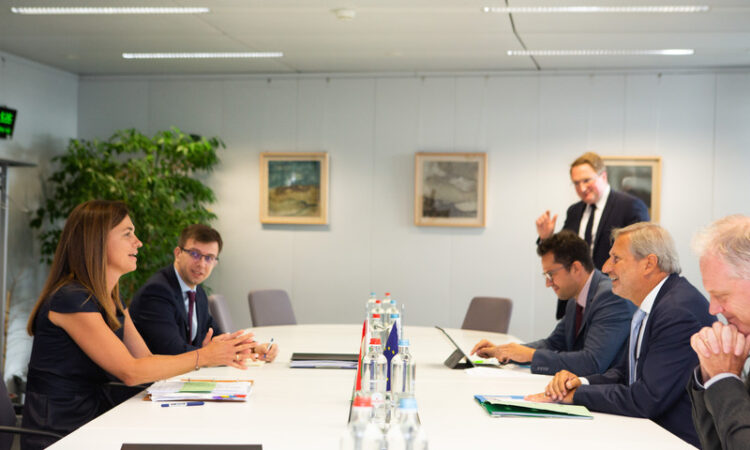
EU budget commissioner Johannes Hahn is set to travel to Budapest on Tuesday (2 May) as negotiations to unlock billions of EU funds, held up because of concerns over judicial independence, made some progress last week.
Hahn is making a visit to the country as part of his tour of the EU-27.
Join EUobserver today
Become an expert on Europe
Get instant access to all articles — and 20 years of archives.
14-day free trial.
… or subscribe as a group
However, Hungary is an especially important stop as the prime minister Viktor Orbán’s government is expected to submit key judicial reforms to parliament as part of its efforts to unblock the EU funds.
“We have the green light from Brussels,” justice minister Judit Varga said on her official Facebook page last Thursday.
Varga was in Brussels earlier in the week and said she has reached a technical agreement with justice commissioner Didier Reynders — to which the EU Commission still needs to give its political blessing.
The commission has suspended part of Hungary’s cohesion funds, and held up its Covid-19 recovery fund, over concerns related to the independence of judges and the country’s failure to comply with the EU Charter of Fundamental Rights on issues including LGBTQ rights, and academic freedom.
The cohesions funds are worth €6.3bn, and the recovery funds allocated would mean €5.8bn — if Hungary fulfils 27 “super milestones” focusing on rule of law, corruption and judicial independence.
Hungary needs the EU funds as its economy is stagnating and inflation running above 25 percent.
EU commission vice-president Vera Jourova is also expected to set forward plans on a sanctions framework targeting corruption.
On Thursday (4 May), the EU’s foreign ministers are set to meet on development issues.
They are also set to discuss with EU foreign affairs chief Josep Borrell the latest developments in Ukraine and Sudan.
EU social ministers and health ministers are set to meet in Stockholm for informal gatherings during the week.
The EU Commission is set to lay out its plans on how to support ammunition production in the bloc, in light of the war in Ukraine.






